Alemania devuelve a Grecia antigüedades robadas
Foto: The heads of Neolithic figurines dating back more than 7,000 years are seen in this undated handout photo provided by the Greek Culture Ministry on Tuesday, Oct. 30, 2007. The artifacts are part of a stolen collection of 94 Neolithic works returned from Greece to Germany, that were presented Tuesday by Culture Minister Michalis Liapis. Archaeologists said the "expressive" figurines may have been modeled on real people. Associated Press
Alemania devolvió a Grecia una colección de casi un centenar de artefactos antiguos robados, incluidos lo que se cree son algunos de los retratos humanos más viejos de que se tenga noticias, informaron las autoridades.
Se trata de artefactos de la era neolítica robados en 1985 de una colección privada en Larissa, en el centro de Grecia, y confiscados por la policía alemana un año más tarde en Munich.
El caso quedó archivado hasta que un tribunal de Munich dispuso en agosto que los objetos debían ser devueltos.
"Son ejemplos excepcionales del neolítico", expresó el ministro de Cultura, Michalis Liapis. "Nos sentimos muy complacidos de tenerlos de vuelta, porque consideramos que el robo de antigüedades es un flagelo mundial".
Las 94 piedras y cerámicas -estatuillas, herramientas y jarrones- datan mayormente del 6.500 al 5.300 a.C. y proceden de la región de Tesalia, en el centro del país, donde se han excavado algunos de los asentamientos del neolítico más importantes hallados en Grecia.
El arqueólogo Nikos Kaltsas, director del Museo Arqueológico Nacional de Atenas, dijo que los artefactos "datan de las primeras épocas de los humanos" y parecen incluir retratos de mujeres del neolítico.
"Parece un arte primitivo, pero es muy expresivo", manifestó. "Las estatuillas de mujeres, con sus peinados complicados y diferentes expresiones y características faciales, indican que son retratos de gente real".
Los objetos fueron llevados a Munich, donde los ladrones trataron de venderlos a un museo, indicó Liapis. Los funcionarios del museo alertaron a las autoridades, que confiscaron las piezas.
Pero nadie fue hallado culpable del robo y las autoridades griegas iniciaron una campaña legal para recuperar los objetos hace apenas seis meses.
Fuente: Associated Press, Atenas / El Nuevo Herald.com, 31 de octubre de 2007
Enlace: http://www.elnuevoherald.com/122/story/110446.html
(2) Stolen artifacts returned to Greece
The Neolithic-era pieces were stolen by armed burglars in 1985
By Nicholas Paphtis
ATHENS, Greece - A stolen collection of about 100 artifacts dating back more than 7,000 years including what appear to be very early human portraits were displayed in Greece Tuesday, for the first time since being smuggled to Germany.
The Neolithic-era artifacts were stolen by armed burglars from a private collection in Larissa, central Greece, in 1985 and seized by German police in Munich a year later. The case had been virtually forgotten until a Munich court ruled in August that the loot should be returned to Greece.
"These works are exceptional examples of the Neolithic (culture)," Culture Minister Michalis Liapis said. "We are very happy to get them back, as we consider antiquities theft a global scourge."
The 94 stone and pottery works _ statuettes, tools and tiny vases _ mostly date between 6500 and 5300 B.C. and come from the central Thessaly region, where Greece's most important Neolithic settlements have been excavated.
Archaeologist Nikos Kaltsas, director of the National Archaeological Museum in Athens, said the artifacts, which are up to 5 inches high, "date to the dawn of human awareness" and appear to include portraits of Neolithic women.
"The artwork appears primitive, but is very expressive," he said. "The statuettes of women ... with their complex hairdos, the differences in facial characteristics and expressions, indicate that these are portraits of real people."
The stolen pieces were smuggled to Munich, where the thieves tried to sell them to a local museum, Liapis said. Museum officials tipped off the police, who seized the works. Nobody was convicted in the theft, and Greek authorities only launched a serious legal bid for their return six months ago.
"The case had been put on the back burner," Liapis said. Liapis did not explain the delay, but his predecessor, George Voulgarakis who launched the bid in April blamed "state inefficiency."
Collector Constantinos Theodoropoulos, from whose house the works were stolen, has donated the artifacts to the state. They will be temporarily exhibited in Athens before being transferred to a museum in Larissa, where they will be displayed along with the rest of Theodoropoulos' collection some 2,500 Neolithic artifacts.
Theodoropoulos said more than 60 stolen pieces were still missing.
"But these were not as good as the ones we got back," he said.
Source: Associated Press, Oct. 30, 2007
Link: http://www.msnbc.msn.com/id/21549124/
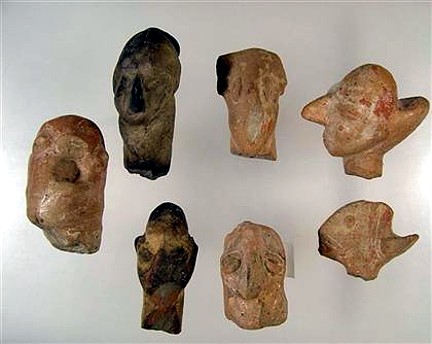
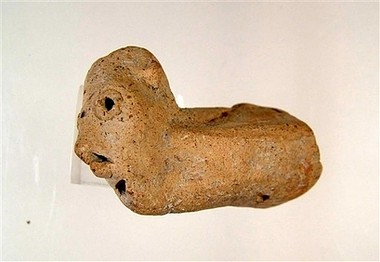
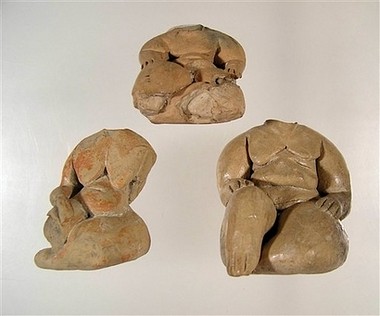
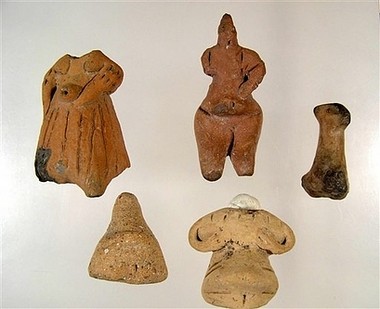
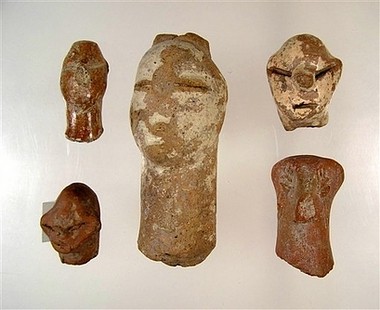
0 comentarios